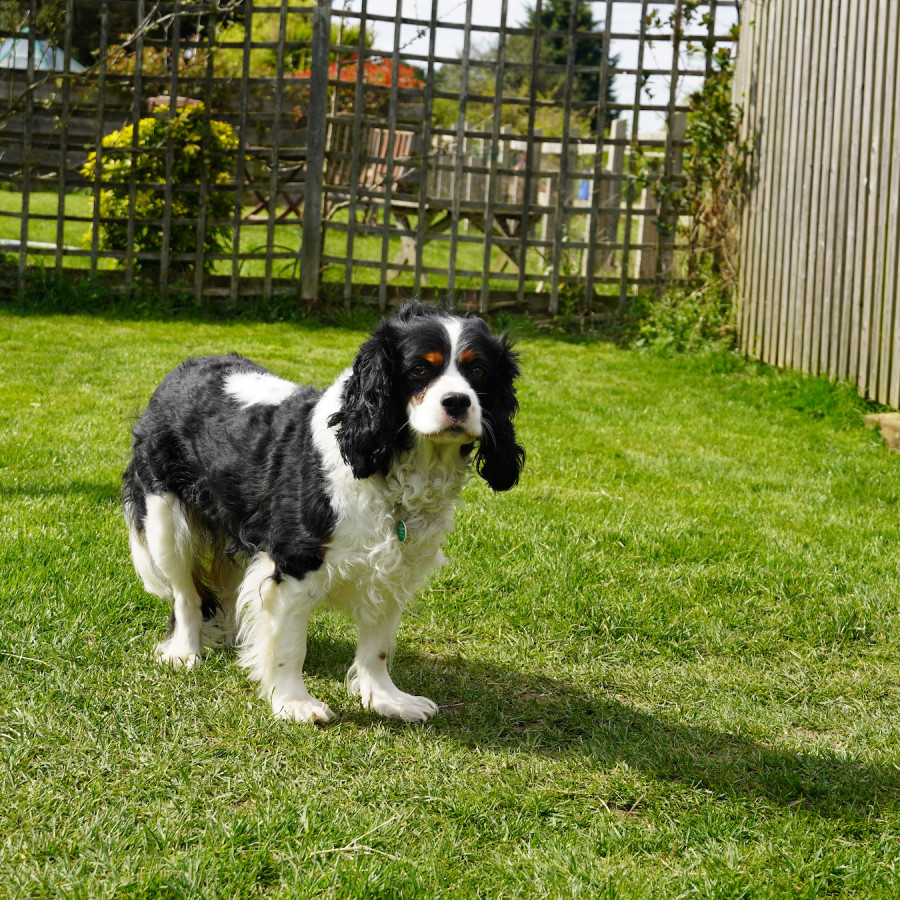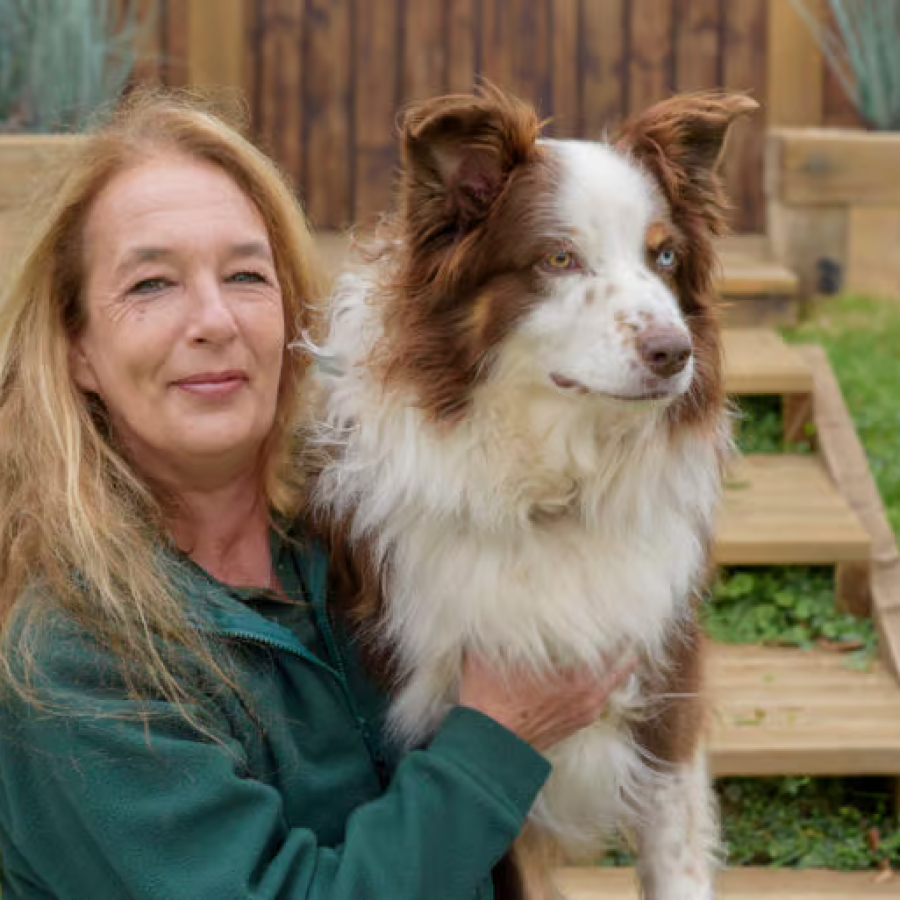
Cavalier King Charles Spaniel Dog Breed
Cavalier King Charles Spaniels are super fun, bright and sweet family members.

Cavalier King Charles Spaniels are super fun, bright and sweet family members.
Breeds like this have extreme conformation, including exaggerated body features or a flat face and shorter nose (brachycephalic). These characteristics can negatively affect their health and welfare, and you may face higher insurance and veterinary costs. For these reasons, we wouldn’t recommend buying this type of dog. See here for more information.
If you decide to go ahead, please consider rescuing a dog in need rather than buying a puppy.
Oh, the beautiful Cavalier King Charles Spaniel, also known as the Cavi. Such a sweet little dog! They’re a balanced, friendly breed… a real pleasure to live with.
Cavis are adaptable to most living arrangements if they can be with their people. They’re a companion breed and don’t thrive in homes where they’re left alone for long periods of time.
A well-bred Cavi should have a great temperament. They’re often happy and easy-going, and they love their walks as much as they love a snuggle on the sofa.
However, they’d likely extend their friendliness to an intruder, too. So, if you’re looking for a home protector, a Cavi isn’t the choice for you!
Cavis are renowned for their wonderfully waggy tails. You can’t help but smile when there’s one by your side!
Disclaimer
While these breed traits give a general idea of what to expect from a specific type of dog, it's important to remember that every dog is unique. Just like people, each dog comes with their own distinct personality, quirks, and characteristics!

Cavis make great family pets, they’re tolerant and playful. But their good nature shouldn’t be taken advantage of, and children should always be supervised in the presence of any dog.
The downside of adding a Cavi to your home is that they’re prone to a couple of serious health conditions, which you can find out more about below.
Cavis are a very affectionate breed but aren’t overly clingy.
They fit in well with families who enjoy the outdoors and also make great companions for retirees.
Because they like to be with their people, they’re not especially suited to homes where they’re left alone while their owners are at work.
Cavis can have separation issues if they aren’t carefully introduced to being left home alone.
Their love of people can also lead to them jumping up to greet everyone. Most people won’t appreciate this, especially if a four-legged friend has mucky paws! Cavis may need extra training with this.
Cavis have that Spaniel drive to get to everything they want to sniff as quickly as possible, meaning they can pull on the lead. Thankfully, they’re so small they’re unlikely to dislocate your arm!
As you can see, even the sweetest-natured breeds need kind, fair and effective training to be model canine citizens.
All puppies need to learn how to be around people, pets, and other dogs, calmly and politely (known as socialisation). They also need help to feel calm, comfortable, and confident in everyday situations like travelling, the sound of traffic, and being in busy places (known as habituation). This is essential to prevent tricky behavioural problems in the future, and you'll be off to a great start with your ongoing training.
Cavis have a history as working dogs and are motivated by both food and toys. This means they’re eager to learn!
They might not have the style and flair of breeds like Border Collies or Belgian Malinois, but as a pet dog, a Cavi’s training needs are easy to meet.
Training for being left home alone, not jumping up and not pulling on the lead are priorities for Cavi owners.
Teaching them to retrieve would also help satisfy the spaniel traits they were bred for (to retrieve hunted birds).
Cavis can be emotionally sensitive, so kind, fair and effective training methods are essential.
Cavis have a beautiful, silky coat! You’ll need a slicker brush, comb and a pair of scissors to keep it in tip-top condition.
Cavis can get matting behind their ears and on the feathering (the longer hair) on their legs.
The hair between their pads needs to be kept short to lower the risk of grass seeds attaching there and penetrating the skin. In the winter months when there’s a risk of snow, this can clump together with the hair between their toes and around their feet looking like snowballs – we call this snowshoes. This can become very painful.
Sadly, this is where taking a Cavi into your life can go wrong. This gorgeous breed is prone to two serious health conditions:
Mitral valve disease - a life-limiting heart condition.
Syringomyelia - the brain being too big for their small, rounded skulls. This condition is also life-limiting.
If you’re looking for a Cavi puppy from a breeder, it’s vital to make sure they’re a top-quality breeder.
They can also suffer from certain eye conditions and a condition where the kneecap dislocates called luxating patella.
As Cavis love their food (and it’s hard to say no to their super cute faces!), they’re prone to obesity. This should be avoided at all costs.
Regular health checks are essential for this breed so they can be treated quickly for any conditions.
I may be small, but I love my walks. Two, 30-minute walks a day that involves me being able to run free and seek and find my toys would be perfect.
I’m pretty smart and like to learn new things. I’m not too demanding on your time but please don’t let me get bored! Using puzzle feeders at mealtimes would be great fun.
With basic training covered, I’ll be a great companion. I’ll need help with being left home alone and not jumping up at new, exciting people, though.
You should expect to pay between £2000 and £4000 for a Cavi whose parents have been fully health-tested.
The initial costs can run up to several hundred pounds, including food, a bed, bowls, toys, a collar, lead, a harness, and more.
Ongoing costs include insurance premiums and food.
Take our quiz to discover which breed is right for you
Take our quizPlease call our pet support line on 0300 303 9333 (7 days a week – 8.30am - 4pm)